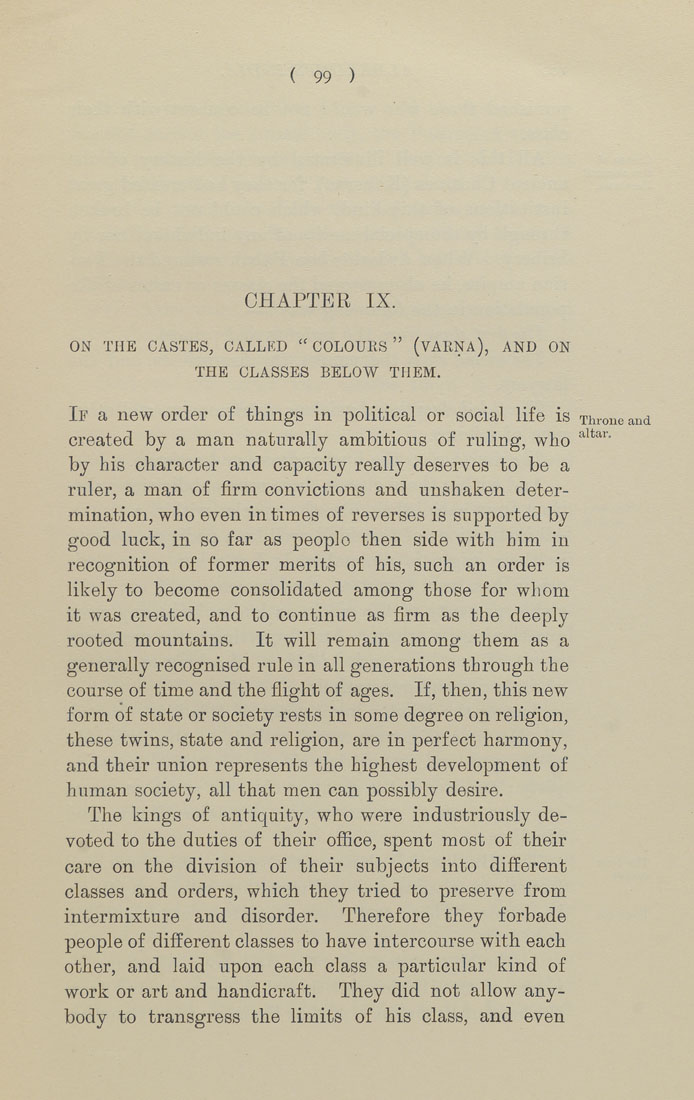Bīrūnī, Muḥammad ibn Aḥmad, Alberuni's India (v. 1)
(London : Kegan Paul, Trench, Trübner & Co., 1910.)
|
||
|
|
|
|
| Page 99 |

altar. CHAPTER IX. ON THE CASTES, CALLED " COLOUKS " (VAIINA), AND ON THE CLASSES BELOW THEM. If a new order of things in political or social life is xhrc created by a man naturally ambitious of ruling, who by his character and capacity really deserves to be a ruler, a man of firm convictions and unshaken deter¬ mination, who even in times of reverses is supported by good luck, in so far as people then side with him in recognition of former merits of his, such an order is likely to become consolidated among those for wliom it was created, and to continue as firm as the deeply rooted mountains. It will remain among them as a generally recognised rule in all generations through the course of time and the flight of ages. If, then, this new form of state or society rests in some degree on religion, these twins, state and religion, are in perfect harmony, and their union represents the highest development of human society, all that men can possibly desire. T'he kings of antiquity, who were industriously de¬ voted to the duties of their office, spent most of their care on the division of their subjects into different classes and orders, which they tried to preserve from intermixture and disorder. Therefore they forbade people of different classes to have intercourse with each other, and laid upon each class a particular kind of work or art and handicraft. They did not allow any¬ body to transgress the limits of his class, and even |
| Page 99 |







